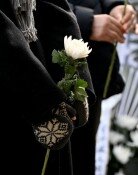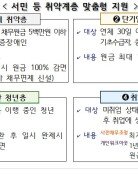Tapes on Japan¡¯s colonialism revealed
Tapes on Japan¡¯s colonialism revealed
Posted August. 08, 2000 12:00,
A set of tapes containing the testimonies of 120 or so Japanese officials, including the high-ranking officials of the Japanese governor general`s office that ruled Korea for 36 years during the period of Japanese colonialism, was made public in Japan on August 8.
The set of 480 reel tapes containing about 800 or so hours of testimony has been kept at the Asian Cultural Research Center of the Gakushuin University. The tapes were made from 1958 to 1962, and they are recordings of the interviews with researchers.
Among those who gave testimony are the three members of top-ranking administrators directly under the governor general and 30 of the top departmental heads of the governor general`s office. Asia Shimbun publicized the existence of these tapes on August 8 and printed partial excerpts of the testimony of 10 people contained in the tapes.
The testimony in the tapes revealed that although the high-ranking officials of the governor general`s office were aware of the opposition among Koreans to being forced to adopt Japanese names, they pushed forward with the mandatory name changes under the justification that some Koreans desired to have Japanese names.
The testimony revealed that as the policy of Japanization faced stiff and violent opposition from Koreans, the whole of Korean society became the target of severe admonition.
In connection to the Japanese defense of the borders with Russia, the tapes revealed that a biological weapon utilizing the typhus bacteria was in use. The revelation brings up the possibility of the Japanese having used germ warfare in their expansionist campaign in Asia.
As all physical documents of the governor general`s office were destroyed in 1945 prior to the Japanese defeat in World War II, the tapes are expected to shed a great deal of light on the various colonial policies of the Japanese during their expansionist era.
However, testimonial tapes include large segments of testimonies that try to justify the colonialism. As such, the tapes are expected to become sources of much debate in the days ahead.






